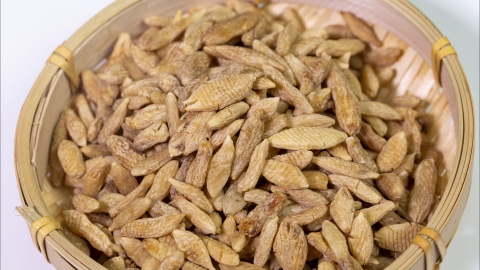Can patients with advanced liver cancer take Ophiopogon japonicus (Mai Dong)?
Generally, patients with advanced liver cancer can consume Ophiopogon japonicus (Mai Dong) under the guidance of a professional physician, but they should be cautious about consuming it in moderation. The specific analysis is as follows:

Patients with advanced liver cancer often experience symptoms of deficiency in both Qi and Yin, such as thirst, dry throat, and dry tongue, due to prolonged illness depleting Qi and Yin essence, including Liver and Kidney Yin deficiency. Ophiopogon japonicus is slightly cold in nature, sweet and slightly bitter in taste, and acts on the Heart, Lung, and Stomach meridians. It can nourish Yin, moisten the lungs, clear the heart, relieve irritability, benefit the stomach, and promote body fluid production, thus helping to alleviate these Yin deficiency symptoms.
Ophiopogon polysaccharides have immune-enhancing effects and may assist in fighting cancer by increasing the number of T lymphocytes, thereby enhancing the body's immunity. For patients with advanced liver cancer, this can help improve physical resistance against tumor-related depletion. Ophiopogon japonicus can protect the liver by promoting the recovery of pancreatic cell function, increasing liver glycogen, and regulating insulin secretion.
However, it should be consumed in moderation to avoid discomfort such as abdominal pain and bloating caused by excessive intake. Comprehensive treatment for advanced liver cancer requires consideration of multiple factors, with Ophiopogon japonicus being only one part of it. Patients should follow the guidance of professional physicians and integrate other treatment methods, such as surgery, radiotherapy, and chemotherapy, into a comprehensive treatment plan.





